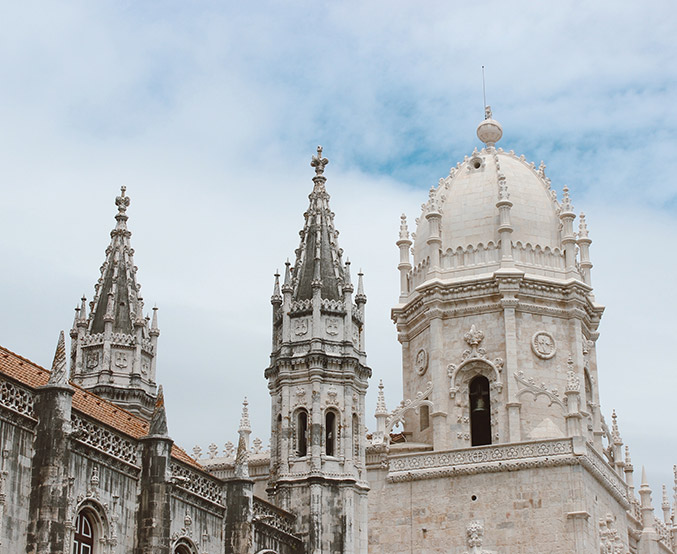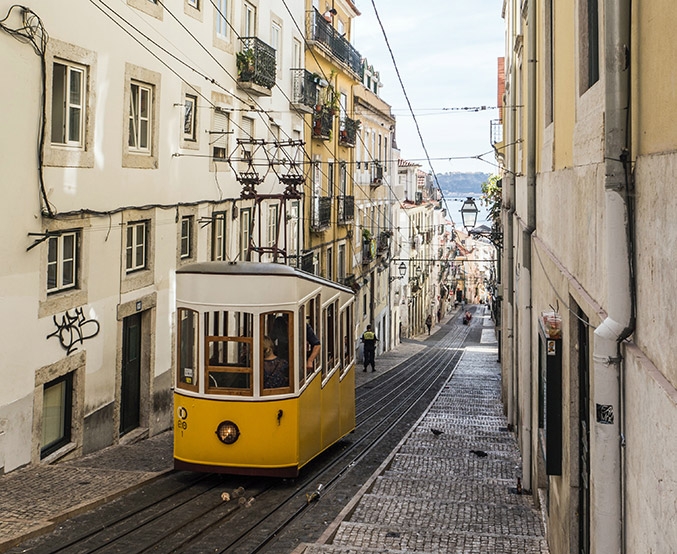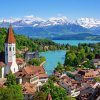Portugal
Portugal is a perfect combination of scenic coastline, white sandy beaches, architecturally creative- design buildings, and some of the world’s best wine.
Portugal has become one of the top-rated for expats to live due to its affordable cost of living and high quality of life. The Portuguese have embraced contemporary life without getting rid of the cultural heritage. You will find an ancient church, outdoor market, and street performers in every city, and you’ll notice that the Portuguese still have a strong family nucleus.
Due to its high degree of acceptance, you will find many integrated people from Africa, Asia, and Brazil. Along with these mixes of cultures, you will see the influence in their food, music, and styles throughout Portugal.
Portugal is a country with something for everyone from historic cities, tropical coastline, hills of vineyards, and outdoor adventures in the mountains.
Things to See and Do in Portugal
Typical Costs When Travelling
Accommodation – When looking for a place to stay, you will find the cost is relatively low compared to other European countries. You can find a basic guesthouse or small hotel offering a simple double or twin room for as little as $50 per night. A mid-range hotel will cost around $90 per night. A unique option is to stay in Pousadas de Portugal, which is a chain that took historic properties such as monasteries or castles and made them into hotels that range from $120-$200 per night. To book a pousada, visit Petrabax in the US or Keytel in the UK. Another popular alternative is country or manor houses, which are privately owned farmhouses offering a bed and breakfast style accommodation and promoted under the Turismo no Espaco Rual (TER). To book your stay with one of these rural houses, you will need to visit the CENTER (Central Nacional de Turismo no Espaco Rual). Rates start around $80 per night. My recommendation is to stay with an Airbnb, ranging from $35-$100 per night. The Airbnb locations were great and within walking destinates to sightseeing locations.
(I recommend using www.Airbnb.com when looking for moderate price accommodations within a nice neighborhood)
Food – I would not consider Portuguese food as appealing as other European cuisines. The typical menu will offer a traditional variety of grilled fish or meat, stews, casseroles, and all served with the same trio of accompaniments -rice, potatoes, and salad. A padaria is a bakery, usually offering a warm croissant or pastel de Nata (custard tarts) with coffee. Much like Spain, the Portuguese enjoy small plates, known as petiscos, which are excellent for sharing with someone. A typical dish is a platter of freshly grilled sardines. While meal prices can vary, the average food cost is around $45- $60 a day. Some of the supermarkets, such as Pingo Doce, will offer a buffet lunch for $5.00. Expect to pay on average $12-$15 for a meal.
(Use www.TripAdvisor.com when trying to locate a restaurant within your budget range)
Transportation – Getting around is pretty easy and inexpensive in Portugal. Buses are the best choice when moving around in the city and covering a lot of territories. In each town is a central bus station to purchase a pass. Check with your hotel concierge to find out more details on where to buy the pass. If you plan to use a bus to travel from one city to another, I suggest visiting the Rede Expressos website. Comboios de Portugal trains are a great way to travel from one city to the next. Beware that some train stations in rural communities may be a reasonable distance from the city center. A route from Lisbon-Porto cost about $30 per person (discounts available for those 65 and older or children). If traveling by rail from Portugal to other European countries, I suggest visiting the InterRail Portugal Pass website. If driving a car is your desire, you will find that many significant roadways will have toll gates, so be prepared to pay with cash.
Suggested daily budget – Average daily budget should be approximately $117 per person, including hotel, transportation, meals, and sightseeing. A two-week vacation for two people costs roughly $3,258 staying at mid-range hotels.
Money Saving Tips
What can I expect from Portugal?
Portugal is a real gem in Europe and will surprise you, as it exceeded our expectations. It is true, Portugal captured our hearts and was on our list of considerations to live permanently. Whether you are looking for history, architecture, food, local traditions, beaches, or the outdoors- Portugal has it all.
The spring or early fall is the ideal time to visit Portugal. Summer months are high season. The rainy season starts in November, and many of the beach resorts are closed. If you love Christmas, you will enjoy a visit to Lisbon during the holidays as it will have Christmas markets and decorations to enjoy.
- Language: The official language of Portugal is Portuguese.
- Currency: Portugal’s currency is the Euro, and the current exchange rate is 1 EUR = $1.14. Most major cities throughout Portugal accept any major credit card, but it is always wise to carry cash in remote locations. The ATMs in Portugal are not only used to withdraw some money but also pay bills.
- Plugs: The Portugal plugs are type F, the standard voltage is 230 V, and the standard frequency is 50Hz. I recommend you buy a universal adapter to attach to your hairdryer and hot tools.
- Safety: Portugal is a safe country to visit; however, always take precautions and beware of your surroundings.
November 6, 2020






